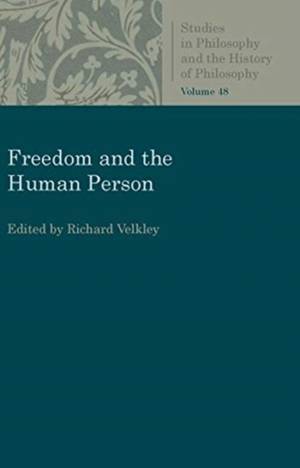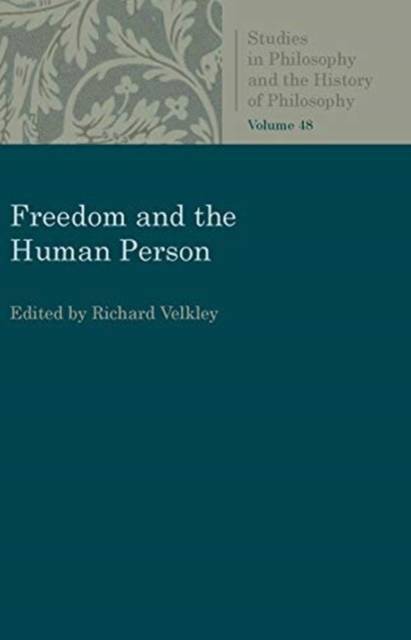
Bedankt voor het vertrouwen het afgelopen jaar! Om jou te bedanken bieden we GRATIS verzending (in België) aan op alles gedurende de hele maand januari.
- Afhalen na 1 uur in een winkel met voorraad
- In januari gratis thuislevering in België
- Ruim aanbod met 7 miljoen producten
Bedankt voor het vertrouwen het afgelopen jaar! Om jou te bedanken bieden we GRATIS verzending (in België) aan op alles gedurende de hele maand januari.
- Afhalen na 1 uur in een winkel met voorraad
- In januari gratis thuislevering in België
- Ruim aanbod met 7 miljoen producten
Zoeken
Omschrijving
In the Western tradition, freedom and the human person have been at the center of philosophical, theological, moral, and political debates since the origins of this tradition. Although contemporary discourse betrays the multiplicity of these roots, the necessary historical perspective for evaluating them is almost always lacking, even in scholarly studies. The terms "freedom" and "person" carry such overwhelming force in the modern world that the critical distance required for grasping what is at stake in using them is extremely hard to gain. The present collection seeks to contribute toward finding that distance by making the tradition of thought more a living reality and not an object of arid analyses. Unlike most collections the present one transcends disciplinary boundaries, as it acknowledges the interconnectedness of philosophical, theological, and political arguments on these themes. The contributors are prominent authorities in particular historical periods or in figures in Western thought, and they treat approaches to freedom and the human person in ancient Greek, biblical, medieval and modern sources, although the major emphasis is on the thought of leading philosophers (Plato, Boethius, Aquinas, Ockham, Machiavelli, Locke, Kant, Hegel, Nietzsche, Husserl, et al.). Their essays bring forward profound contrasts in how freedom and personhood have been grounded and characterized, notably the contrasts between groundings in natural reason and in supernatural revelation, between premodern teleological thinking and modern thinking on self-sovereignty without teleology, and within modern thought between positions favoring individual autonomy and others securing freedom and its exercise in communal or traditional life. Several of the papers shed light on the relations of freedom and personhood to the human powers of speech, thought, and judgment. The contributors to the volume are Seth Benardete, Michael Gillespie, Leon Kass, Robert B. Pippin, Robert Rethy, John M. Rist, Brian J. Shanley, O. P., Susan Meld Shell, Robert Sokolowski, Eleonore Stump, Nathan Tarcov, and Michael P. Zuckert (with Jesse Covington and James Thompson). Richard Velkley, former professor of philosophy at the Catholic University of America, is Celia Scott Weatherhead Professor of Philosophy at Tulane University. He is author of Freedom and the End of Reason: On the Moral Foundation of Kant's Critical Philosophy and Being after Rousseau: Philosophy and Culture in Question.
Specificaties
Betrokkenen
- Auteur(s):
- Uitgeverij:
Inhoud
- Aantal bladzijden:
- 266
- Taal:
- Engels
- Reeks:
Eigenschappen
- Productcode (EAN):
- 9780813232089
- Verschijningsdatum:
- 17/01/2019
- Uitvoering:
- Paperback
- Formaat:
- Trade paperback (VS)
- Afmetingen:
- 150 mm x 226 mm
- Gewicht:
- 498 g

Alleen bij Standaard Boekhandel
+ 112 punten op je klantenkaart van Standaard Boekhandel
Beoordelingen
We publiceren alleen reviews die voldoen aan de voorwaarden voor reviews. Bekijk onze voorwaarden voor reviews.









